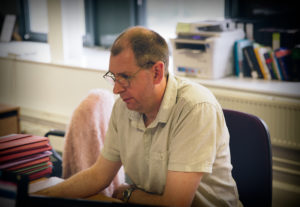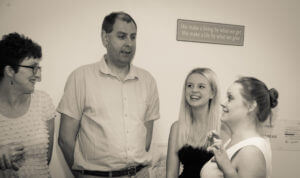
Best Sexual Assault Solicitors Secure Victory At Trial
Darrell contacted us absolutely bewildered and terrified. He had been wrongly charged with sexual assault.
He just did not know what to do.
From our first conversation with Darrell it became apparent that this was clearly a malicious allegation.
Lucy, the alleged victim was the sister of Charlie, who was, at the time, a tenant of Darrell’s. Charlie, however, had not paid her rent in months, so Darrell was having to go through the process of evicting her from the flat. Because Charlie was young, her mum acted as guarantor, and so Darrell, as per the agreement, was contacting Charlie and Lucy’s Mum to recover the outstanding rent.
Lucy became involved a few days before the eviction was due to take place. She contacted Darrell and appeared to be the more reasonable sister and was arranging for Charlie to hand over the keys to the flat.
An agreement was put into place and the three of them met up at Charlie’s flat and the key was handed over. The flat was in a state, and items had gone missing. Darrell decided that he would go forward with obtaining the outstanding rent from their Mum due to the state of the property.
Lucy invited Darrell back to her house for a cup of tea, so that they could discuss things and get everything sorted. Again Lucy was very determined to try and persuade Darrell to not pursue her mother for the outstanding rent.
Lucy started talking about her tattoos, and began to show them to Darrell (without his request). Darrell was not interested. Lucy then asked Darrell to touch a scar in the centre of her back to see if it was raised.
Darrell was there for around 45 minutes.
A few days later Darrell was arrested on suspicion of Sexual Assault against Lucy.
He was charged and given a date to attend Derby Magistrates Court.
This is when he contacted us, looking for the best sexual assault solicitors to help him.
We arranged for Darrell to come in and meet his caseworker, Jess Sadler [pictured above], face to face so he could tell us what happened.
There were no time limits. It was just Darrell’s chance to tell us what really happened, and we were there to listen for as long as he needed.
We started preparing his case immediately. We knew how important this was to him, and how life changing it would be if he was falsely convicted of the offence.
It was a difficult case from the beginning. It was essentially his word against hers, with no evidence to support either version of events.
Darrell was represented by our senior solicitor, Steve Williams. Steve has over 25 years’ experience in criminal matters and is personally known to Derby Magistrates. Darrell wanted the best sexual assault solicitors and there was no better person to represent Darrell.
As the best sexual assault solicitors in the area, we are used to thinking outside the box and building every case individually, free from templates, pro-formas or any other restrictions. In this case, we decided that due to the lack of third-party evidence to support our case, we would use something that nobody could deny to persuade the Magistrates to believe Darrell’s version of events.
We used Darrell.
Darrell had been a landlord for many years, and so many of his tenants wanted to help in whatever way they could to repay the help that Darrell had given to them. We contacted each of them, explained the process and took witness statements from them all.
The point was we wanted to show to the court that Darrell was not the type of person who would commit this offence.
Darrell came in and had numerous meetings with his caseworker, and met with Steve before the trial to prepare him for what was going to happen and help him through cross examination.
The trial day came.
Darrell attended with his witnesses, Steve and his caseworker.
We went into court and the prosecution opened the case and called Lucy to the stand. Lucy gave evidence which completely contradicted the statements she had given to the police.
Steve cross-examined her and highlighted all of these discrepancies in her evidence.
Lucy’s mum was then called to give evidence, as it was alleged that Lucy rang her straight after the alleged incident to tell her about what had happened. This evidence again contradicted everything that was said in both cross-examination of Lucy and her police statements.
At this stage the prosecution case was finished.
It was our turn to put forward Darrell’s defence.
We asked for a short moment to discuss with our client.
We went out and explained that he was in such a strong position right now, and so we advised that it was worthwhile making a submission that there was no case to answer to the court.
If it was successful then the case would be thrown out and that would be the end of the matter.
We explained the pros and cons of making the submission, and Darrell agreed it was worth a go.
Steve went into the court room and made a very persuasive argument as to why there was no case to answer.
The Magistrates went away and considered our application.
After a short five minutes they returned.
No case to answer.
Darrell was free to go.
Darrell and his partner were overwhelmed. We had saved Darrell from having to stand up in court, and had protected his innocence.
We are now working with Darrell to recover his legal fees from the National Taxing Team.
If you need the best sexual assault solicitors to defend you, call us now on 01623 397200.


